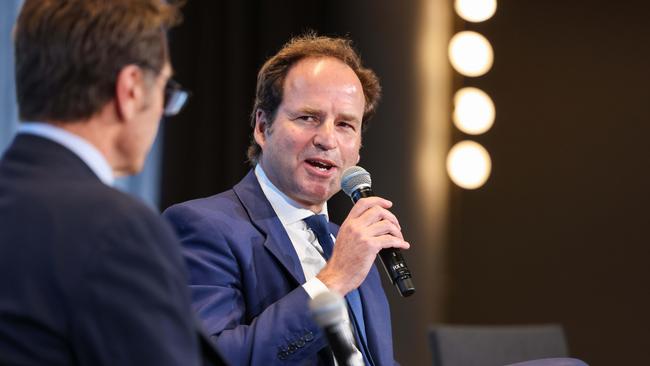Real wages cut by more than seven per cent in South Australia, sending the state’s living standards backwards
While SA’s economy is thriving on many measures, real wages for workers are going backwards at the fastest rate in the nation – and a business leader has sounded the alarm.
SA News
Don't miss out on the headlines from SA News. Followed categories will be added to My News.
South Australian’s average wages have suffered an unprecedented real cut of more than seven per cent in the past three years, sending living standards backwards.
In a keynote address on Wednesday night, SA Productivity Commission chairman Adrian Tembel said the state’s economic growth had outpaced the nation’s in the past three years in an unprecedented surge that had delivered Australia’s lowest unemployment rate.
At the same time, he said, average wages had been cut by 7.6 per cent, in real terms – the worst in the country.
Adelaide had the second-worst housing affordability among capital cities, Mr Tembel told a Committee for Adelaide event, reversing a historic trend of lower costs.

Strong economic growth had been driven by cyclic agricultural exports, while jobs growth had been spurred by healthcare and social assistance.
“Our recent growth has created valuable employment opportunities and economic momentum but it has not benefited all South Australians,” he said.
“In fact, it is likely that more South Australians have gone economically backwards in the last three years than forwards.”
Mr Tembel, also Thomson Geer lawyers chief executive partner, said recent jobs growth was “more cyclic and lower quality than we would prefer”.

Premier Peter Malinauskas in February told a Whyalla public forum that politicians should talk more about improving wages and productivity.
“We have a market-based economy, so what we’ve got to spend time doing more work on isn’t trying to talk about how we’re going to reduce costs, but actually about how we’re going to improve people’s incomes, in a way that isn’t inflationary,” he said, at the February 26 forum.
“ … That’s how we grow people’s wealth. That’s how we improve our economy. That’s how we generate prosperity for people.”
Committee for Adelaide chief executive officer Sam Dighton, whose group will soon release a five-point plan to boost productivity, said a 2023 report found labour productivity lagged almost 20 per cent below comparable cities.
“Rates of public and private innovation are behind and there is work to do to position Adelaide as a place for business, with an ongoing need to attract and retain talent and embrace an urbanised economy that thrives on knowledge, diverse skills, and high-paying jobs,” he said.
“Adelaide has to be vigilant that our long-held advantages, such as affordability and lifestyle, don’t erode.”





